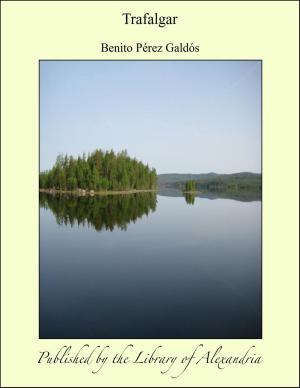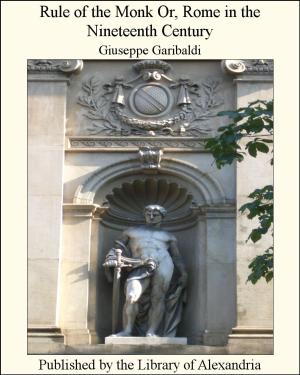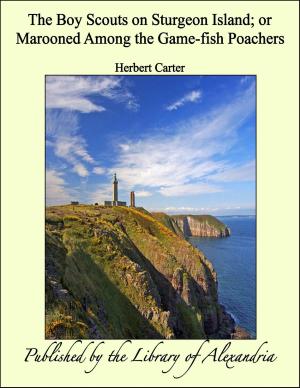Incidents of Travel in Greece, Turkey, Russia, and Poland (Complete)
Nonfiction, Religion & Spirituality, New Age, History, Fiction & Literature| Author: | John Lloyd Stephens | ISBN: | 9781465507686 |
| Publisher: | Library of Alexandria | Publication: | March 8, 2015 |
| Imprint: | Language: | English |
| Author: | John Lloyd Stephens |
| ISBN: | 9781465507686 |
| Publisher: | Library of Alexandria |
| Publication: | March 8, 2015 |
| Imprint: | |
| Language: | English |
On the evening of the —— February, 1835, by a bright starlight, after a short ramble among the Ionian Islands, I sailed from Zante in a beautiful cutter of about forty tons for Padras. My companions were Doctor W., an old and valued friend from New-York, who was going to Greece merely to visit the Episcopal missionary school at Athens, and a young Scotchman, who had travelled with me through Italy, and was going farther, like myself, he knew not exactly why. There was hardly a breath of air when we left the harbour, but a breath was enough to fill our little sail. The wind, though of the gentlest, was fair; and as we crawled from under the lee of the island, in a short time it became a fine sailing breeze. We sat on the deck till a late hour, and turned in with every prospect of being at Padras in the morning. Before daylight, however, the wind chopped about, and set in dead ahead, and when I went on deck in the morning it was blowing a hurricane. We had passed the point of Padras; the wind was driving down the Gulf of Corinth as if old Æolus had determined on thwarting our purpose; and our little cutter, dancing like a gull upon the angry waters, was driven into the harbour of Missilonghi. The town was full in sight, but at such a distance, and the waves were running so high, that we could not reach it with our small boat. A long flat extends several miles into the sea, making the harbour completely inaccessible except to small Greek caiques built expressly for such navigation. We remained on board all day; and the next morning, the gale still continuing, made signals to a fishing boat to come off and take us ashore. In a short time she came alongside; we bade farewell to our captain—an Italian and a noble fellow, cradled, and, as he said, born to die on the Adriatic—and in a few minutes struck the soil of fallen but immortal Greece. Our manner of striking it, however, was not such as to call forth any of the warm emotions struggling in the breast of the scholar, for we were literally stuck in the mud. We were yet four or five miles from the shore, and the water was so low that the fishing-boat, with the additional weight of four men and luggage, could not swim clear. Our boatmen were two long, sinewy Greeks, with the red tarbouch, embroidered jacket, sash, and large trousers, and with their long poles set us through the water with prodigious force; but, as soon as the boat struck, they jumped out, and, putting their brawny shoulders under her sides, heaved her through into better water, and then resumed their poles. In this way they propelled her two or three miles, working alternately with their poles and shoulders, until they got her into a channel, when they hoisted the sail, laid directly for the harbour, and drove upon the beach with canvass all flying.
On the evening of the —— February, 1835, by a bright starlight, after a short ramble among the Ionian Islands, I sailed from Zante in a beautiful cutter of about forty tons for Padras. My companions were Doctor W., an old and valued friend from New-York, who was going to Greece merely to visit the Episcopal missionary school at Athens, and a young Scotchman, who had travelled with me through Italy, and was going farther, like myself, he knew not exactly why. There was hardly a breath of air when we left the harbour, but a breath was enough to fill our little sail. The wind, though of the gentlest, was fair; and as we crawled from under the lee of the island, in a short time it became a fine sailing breeze. We sat on the deck till a late hour, and turned in with every prospect of being at Padras in the morning. Before daylight, however, the wind chopped about, and set in dead ahead, and when I went on deck in the morning it was blowing a hurricane. We had passed the point of Padras; the wind was driving down the Gulf of Corinth as if old Æolus had determined on thwarting our purpose; and our little cutter, dancing like a gull upon the angry waters, was driven into the harbour of Missilonghi. The town was full in sight, but at such a distance, and the waves were running so high, that we could not reach it with our small boat. A long flat extends several miles into the sea, making the harbour completely inaccessible except to small Greek caiques built expressly for such navigation. We remained on board all day; and the next morning, the gale still continuing, made signals to a fishing boat to come off and take us ashore. In a short time she came alongside; we bade farewell to our captain—an Italian and a noble fellow, cradled, and, as he said, born to die on the Adriatic—and in a few minutes struck the soil of fallen but immortal Greece. Our manner of striking it, however, was not such as to call forth any of the warm emotions struggling in the breast of the scholar, for we were literally stuck in the mud. We were yet four or five miles from the shore, and the water was so low that the fishing-boat, with the additional weight of four men and luggage, could not swim clear. Our boatmen were two long, sinewy Greeks, with the red tarbouch, embroidered jacket, sash, and large trousers, and with their long poles set us through the water with prodigious force; but, as soon as the boat struck, they jumped out, and, putting their brawny shoulders under her sides, heaved her through into better water, and then resumed their poles. In this way they propelled her two or three miles, working alternately with their poles and shoulders, until they got her into a channel, when they hoisted the sail, laid directly for the harbour, and drove upon the beach with canvass all flying.















